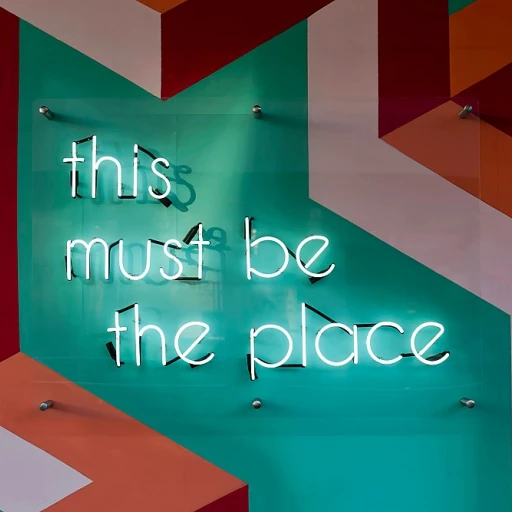
Understanding the role of an employee engagement specialist
What Does an Employee Engagement Specialist Do?
An employee engagement specialist plays a vital role in shaping the work environment and culture within an organization. Their main focus is to ensure employees feel valued, motivated, and connected to their jobs. This specialist is often part of the human resources team, working closely with managers and employee relations professionals to design and implement engagement initiatives that boost employee satisfaction and well-being.
Engagement specialists use their skills to bridge the gap between employees and management. They listen to employee feedback, identify challenges, and develop strategies to address concerns before they escalate. By fostering open communication, they help create a positive work culture where employees can thrive.
Key Responsibilities in the Organization
- Developing and managing engagement programs that support a healthy work-life balance
- Collaborating with managers to improve employee relations and experience
- Analyzing employee feedback and satisfaction data to identify trends
- Providing training and resources to managers and employees on effective communication and problem solving
- Supporting the implementation of business strategies that prioritize employee well-being
Specialists are also responsible for measuring the impact of engagement initiatives. This includes tracking how changes in the work environment affect employee satisfaction, retention, and overall business performance. In the United States, the demand for engagement specialist jobs continues to grow as organizations recognize the importance of engaged employees for long-term success.
It’s important to note that poor employee engagement can lead to disengagement and even conflicts of interest at work. For more insights on how these conflicts can impact the workplace, you can read about how conflicts of interest can lead to disengagement at work.
Ultimately, the role of an engagement specialist is about creating a workplace where employees feel supported, heard, and empowered to balance their professional and personal lives. Their expertise in communication, employee relations, and engagement strategies is essential for building a positive and productive organizational culture.
Identifying the signs of poor work life balance
Recognizing When Balance Is Off Track
Spotting the early signs of poor work-life balance is crucial for any engagement specialist or manager. When employees struggle to separate their work and personal time, the impact can ripple through the entire organization. Specialists in employee engagement are trained to observe these patterns and respond with effective strategies, but it starts with knowing what to look for.
- Increased Absenteeism: Employees taking more sick days or arriving late can signal burnout or disengagement.
- Declining Job Performance: A drop in productivity or missed deadlines often points to stress or lack of motivation.
- Low Employee Satisfaction: Regular feedback, such as engagement surveys or interview questions, may reveal dissatisfaction with the work environment or culture.
- Poor Communication: When employees stop sharing ideas or avoid manager-employee discussions, it can indicate a strained relationship or lack of trust.
- Negative Attitudes: Complaints about workload, specialist jobs, or business practices can reflect deeper issues with employee relations.
- High Turnover: If engaged employees are leaving, it’s a clear sign that engagement initiatives and programs need review.
Engagement specialists use these indicators to guide their problem solving and develop targeted engagement programs. Early detection allows organizations to adjust their strategies, support employee experience, and create a more positive work culture. For more on how change management can support better balance, see navigating procurement transformation change management for better work-life balance.
By focusing on these signs, specialists and managers can foster a supportive environment where employees feel valued and engaged, leading to improved employee satisfaction and business outcomes across the United States and beyond.
Strategies used by engagement specialists to promote balance
Practical Approaches for Supporting Employee Well-Being
Employee engagement specialists play a crucial role in shaping a positive work environment and promoting work-life balance. Their strategies are not one-size-fits-all; they are tailored to the unique needs of the organization and its employees. Here are some of the most effective approaches used by engagement specialists to foster balance and satisfaction:- Flexible Work Arrangements: Specialists often advocate for flexible hours, remote work options, and hybrid models. These adjustments help employees manage their time more effectively, reducing stress and improving overall employee experience.
- Employee Engagement Programs: Engagement initiatives such as wellness programs, mental health days, and team-building activities are designed to support employee well-being. These programs encourage employees to recharge, which can lead to higher job satisfaction and productivity.
- Manager-Employee Communication: Open lines of communication between managers and employees are essential. Engagement specialists train managers to recognize early signs of burnout and to initiate supportive conversations, ensuring employees feel heard and valued.
- Recognition and Rewards: Recognizing engaged employees for their contributions boosts morale and reinforces a positive work culture. Specialists implement recognition systems that celebrate achievements, both big and small.
- Professional Development: Providing opportunities for skill-building and career growth helps employees feel more engaged in their jobs. Engagement specialists design training sessions and workshops that align with both business goals and individual aspirations.
- Employee Feedback Mechanisms: Regular surveys and feedback sessions allow specialists to gauge employee satisfaction and identify areas for improvement. This data-driven approach ensures that engagement initiatives remain relevant and effective.
The importance of communication and feedback
Building Trust Through Open Dialogue
Effective communication is at the heart of any successful employee engagement strategy. Engagement specialists know that when employees feel heard and valued, their satisfaction and commitment to the organization grow. Open dialogue between employees, managers, and human resources teams helps identify challenges early, such as signs of burnout or dissatisfaction with work-life balance.Feedback as a Tool for Continuous Improvement
Regular feedback sessions are essential for maintaining a positive work environment. Engagement specialists often implement structured feedback mechanisms, such as surveys, one-on-one meetings, or anonymous suggestion boxes. These tools allow employees to express concerns about their jobs, workload, or time management without fear of negative consequences. When feedback is acted upon, employees see that their voices matter, which strengthens trust and engagement.- Anonymous surveys help specialists identify trends in employee satisfaction and engagement.
- One-on-one meetings between manager and employee encourage honest conversations about work-life balance.
- Feedback loops ensure that engagement initiatives are adjusted based on real employee experience.
Role of Communication in Shaping Company Culture
A culture of open communication supports both employee relations and business goals. Engagement specialists work closely with managers and employees to ensure that expectations are clear and that everyone understands the organization’s values regarding work-life balance. This clarity helps reduce misunderstandings and supports a more engaged, productive workforce.Skills Needed for Effective Communication
Specialists in employee engagement must possess strong interpersonal and problem-solving skills. They act as a bridge between employees and leadership, translating feedback into actionable strategies. Their ability to listen actively and respond empathetically is crucial for building positive work relations and supporting engagement programs.Early Intervention and Ongoing Support
Early identification of communication breakdowns allows engagement specialists to address issues before they escalate. By fostering a culture of transparency and continuous feedback, organizations can create a supportive work environment where employees feel empowered to balance their professional and personal lives. This proactive approach is a key factor in successful engagement initiatives across the United States and beyond.Supporting remote and hybrid work environments
Adapting Engagement Strategies for Flexible Work Models
Remote and hybrid work environments have changed the way employees interact with their jobs, managers, and organizations. Engagement specialists are now required to adapt their strategies to ensure employees feel connected, supported, and valued, regardless of their physical location. This shift has made employee engagement programs more complex, but also more essential for maintaining a positive work culture and employee satisfaction.Key Approaches for Remote and Hybrid Teams
- Fostering Communication: Regular check-ins, virtual meetings, and open channels for feedback help maintain strong manager-employee relations. Engagement specialists encourage transparent communication to address concerns early and support employee relations.
- Promoting Flexibility: Specialists advocate for flexible work hours and respect for personal time, recognizing that remote employees often struggle to separate work from home life. This approach supports a healthier work environment and improves employee experience.
- Building Community: Virtual team-building activities and online engagement initiatives help create a sense of belonging. These strategies are crucial for remote employees who may feel isolated from the business culture.
- Providing Resources: Engagement specialists ensure employees have access to the tools, technology, and support needed to perform their jobs effectively from any location. This includes training on remote work skills and problem solving.
Challenges and Opportunities in Specialist Roles
The role of an engagement specialist in the United States and beyond now involves addressing unique challenges such as digital fatigue, time management, and maintaining employee engagement across different time zones. By implementing targeted engagement programs and regularly measuring employee satisfaction, specialists can identify early signs of disengagement and adjust their strategies accordingly. Organizations that invest in specialist employee roles and prioritize positive work environments see higher levels of engaged employees, improved employee relations, and better business outcomes. The experience and expertise of engagement specialists are vital for supporting employees in remote and hybrid settings, ensuring that work-life balance remains a core part of the organizational culture.Measuring the impact of engagement initiatives on work life balance
Tracking Progress: How Engagement Initiatives Shape Work-Life Balance
Measuring the impact of engagement initiatives on work-life balance is essential for any organization aiming to create a positive work environment. Engagement specialists and human resources teams use a variety of tools and methods to understand how their strategies are influencing employee satisfaction and overall culture. One of the most effective ways to assess progress is through regular feedback and communication channels. These include surveys, focus groups, and one-on-one discussions between manager and employee. By gathering honest input, specialists can identify whether employees feel supported in balancing their work and personal time. Key metrics often tracked by engagement specialists include:- Employee satisfaction scores
- Absenteeism and turnover rates
- Participation in engagement programs
- Utilization of flexible work options
- Feedback on work environment and culture













